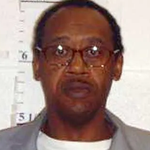
Nebraska (4/3/20) — In a state post-conviction appeal, the Nebraska Supreme Court rejected a challenge to the state’s capital sentencing process filed by death-row prisoner Jeffrey Hessler.
Hessler argued that Nebraska’s three-judge sentencing proceedings violated his Sixth Amendment right to have a jury determine all facts necessary for a death sentence to be imposed. The court ruled that Hessler’s argument was untimely and therefore procedurally barred, and added that under the recent U.S. Supreme Court decision in McKinney v. Arizona, there is no constitutional requirement that the jury be the ultimate sentencer in a death penalty case.

Florida (4/2/20) — The Florida Supreme Court issued two death penalty decisions, one upholding the death sentence imposed on Raymond Bright in a 2016 capital resentencing hearing and the second declining to reconsider its ruling in State v. Poole in which it receded from its prior decisions requiring that capital sentencing juries unanimously agree to the death penalty before a trial judge may sentence a defendant to death. In the second case, it also clarified that Mark Anthony Poole is entitled to review of the other penalty-phase claims he had raised in his post-conviction petition that had not been addressed on the merits by the trial court in its prior ruling in the case.

California (4/2/20) — On direct appeal, the California Supreme Court upheld the conviction and death sentence imposed on James Michael Fayed in Los Angeles in 2011 for arranging for the murder of his estranged wife. At the time of the murder, the Fayeds were involved in divorce proceedings and were under federal investigation for alleged money laundering.
The court held that the prosecutor had engaged in misconduct in the guilt-phase closing argument by asking the jury to imagine what was going through the victim’s mind in the several minutes it took for her to die. However, it ruled that, given the strength of the evidence against Fayed, the misconduct was not prejudicial. It declined to rule on a conflict of interest claim Fayed raised on appeal after his prosecutor became a partner in his trial counsel’s law firm, saying that “because the partnership … began after defendant’s capital trial ended, relevant facts relating to any conflict of interest issue are not part of the record.”

Missouri (4/1/20) — The U.S. Court of Appeals for the Eighth Circuit has reversed itself and denied Missouri death-row prisoner Ernest Johnson’s challenge to the constitutionality of Missouri’s use of pentobarbital to execute him by lethal injection. The U.S. Supreme Court had remanded the case to the circuit with directions to reconsider Johnson’s case in light of the Court’s 2019 lethal-injection decision in Bucklew v. Precythe.
The Eighth Circuit ruled that Johnson — who had presented evidence that, because of his medical condition, lethal injection by pentobarbital would cause him to experience a “severely painful” “violent seizure” — had met Bucklew’s first requirement of pleading that the state’s execution process was cruel. However, the court said that he longer met the requirement of proving that Missouri had a less painful alternative method to carry out his execution because the alternative method he had offered — nitrogen hypoxia — has never been used for that purpose before and, under Bucklew, Missouri is not required to use an “untried and untested” method to execute a prisoner.

Texas (4/1/20) — The Texas Court of Criminal Appeals denied relief to death-row prisoners in three separate cases.
- In a decision on direct appeal, the court affirmed the conviction and death sentence of Billy Joel Tracy for the 2015 prison killing of a correctional officer.
- In an unsigned, unpublished order on a subsequent application for state habeas corpus relief, the court denied three claims presented by Jaime Cole challenging the effectiveness of the representation provided to him in the penalty phase of his capital trial. Cole alleged that counsel had been ineffective when they failed to (1) investigate and present mitigating evidence of Cole’s exposure to neurotoxins and brain damage; (2) develop and present reliable evidence that he would not pose a future danger to society if sentenced to life; and (3) object to the trial court’s statement to the jury that the case would be automatically reviewed on appeal if they sentenced Cole to death.
- In another unsigned, unpublished order on a successive state habeas petition, the court upheld Brian Davis’s death sentence, ruling that he had “not made an adequate prima facie showing regarding his claim of intellectual disability.”


